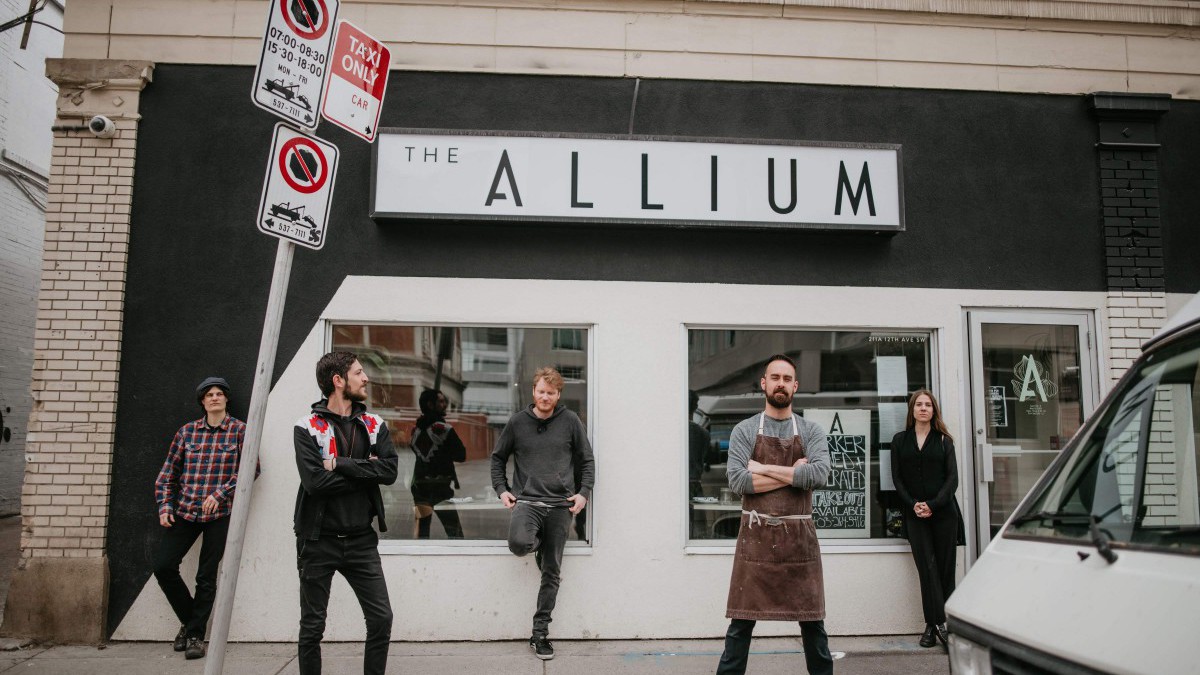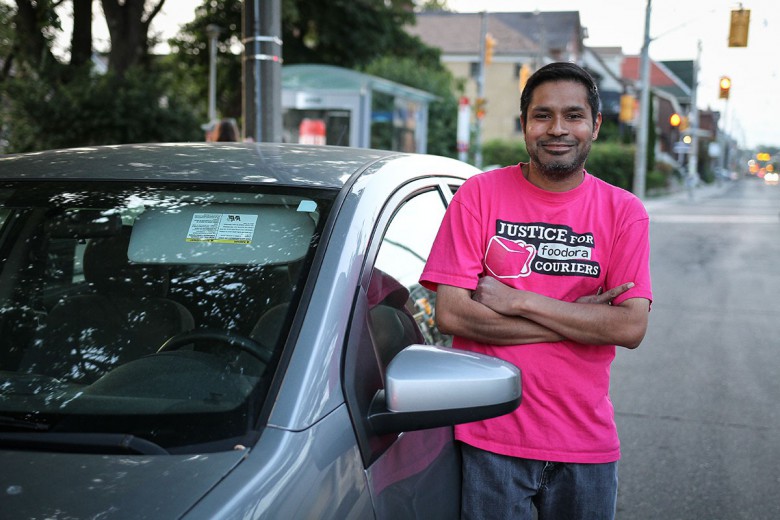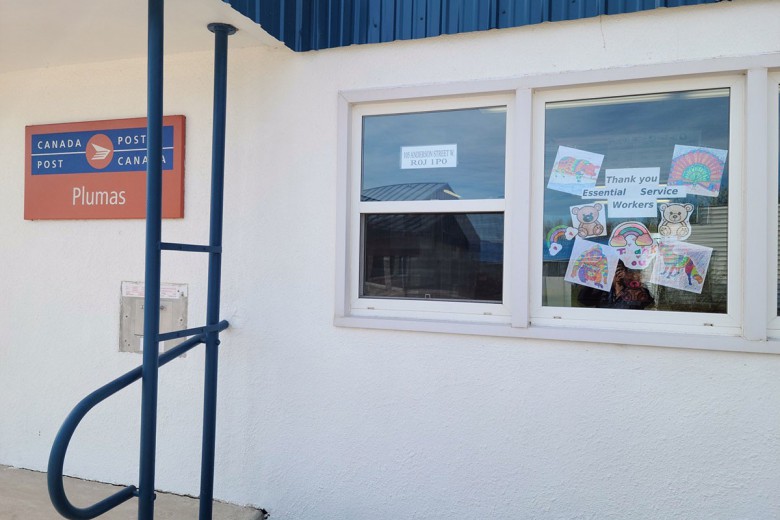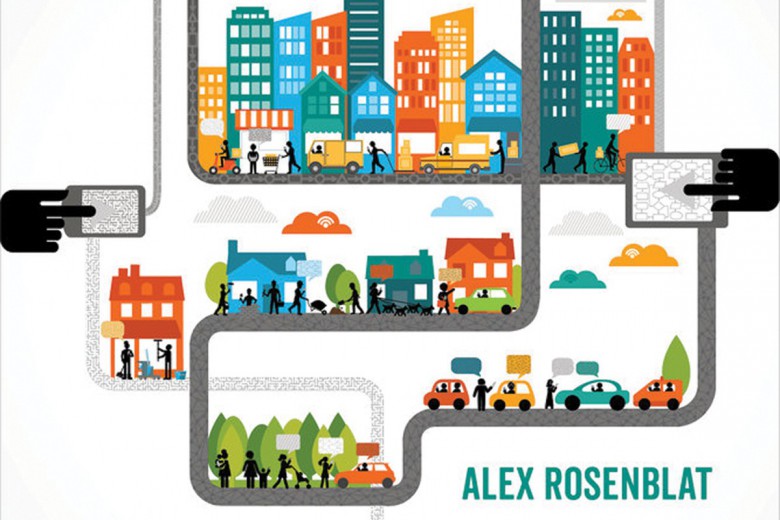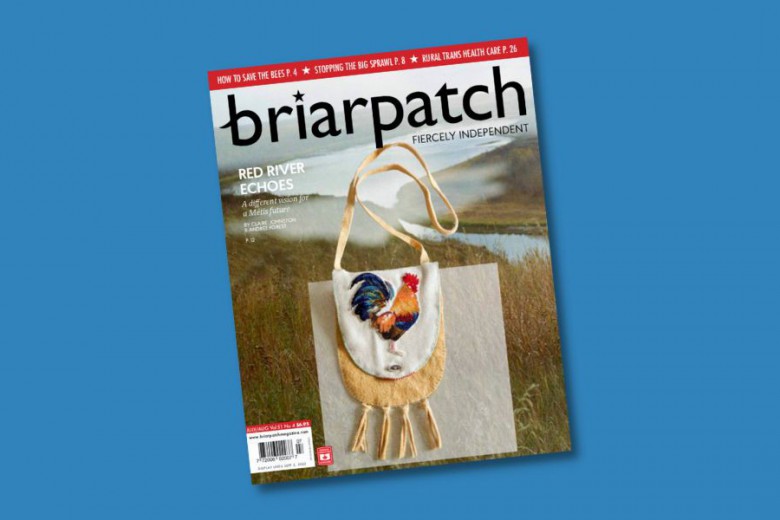“We never wanted to own a restaurant,” Laura Blustein says. Both Laura and her husband, Jared Blustein, had extensive experience in the restaurant and hospitality industries, but not much good to say about it all. The industries’ wasteful food practices, patriarchal mindset, and culture of worker discipline were among the reasons the pair left.
Growing up in Calgary, Jared was always proud of the long-standing co-operative tradition in the Prairies, along with the co-op gas stations and grocery stores that dot the countryside. After completing his sociology degree in 2017, he and Laura were looking for their next chapter. They travelled to Mexico’s Chiapas state and explored the Zapatista Autonomous Municipalities, where they hatched an idea: they would start a worker-owned co-operative in their hometown of Calgary.
“I wanted to remind Alberta of our rich co-operative legacy,” Jared says. “We do have a past experience of socialized economies, like farm co-ops and public banking. We should be proud of our communalist legacy and it is something I wanted to stand on and hold up in people’s minds.” Although they disliked working in the restaurant industry, they were both familiar with restaurants and hoped that a worker co-op model might solve some of the ethical issues that they had encountered.
“We wanted to demonstrate to people that work doesn’t have to be this way. The economy doesn’t have to be run this way,” Jared says. “We don’t have to ignore our ecology, our community, or our food systems to do this work.”
Part of a co-operative legacy
To prepare, they reached out to worker co-operatives in Canada and the United States, as well as organizations like the Canadian Worker Co-op Federation and the Alberta Community & Co-operative Association for advice and start-up resources. They studied worker-owned co-ops’ ownership frameworks and governance models. Jared enrolled in a social enterprise course offered by the organization Momentum, which helped him draft The Allium’s business plan. Meanwhile, Laura, a long-time vegetarian, researched farms where the restaurant could source local produce and find other ways to reduce The Allium’s impact on the planet.
Financing is a common bottleneck for worker co-ops – bank loans are financially burdensome and banks don’t like to deal with co-ops’ multiowner structures. So, Laura and Jared decided to assemble a team of worker-owners who could buy into the co-op. According to Jared’s business plan, they would need five more owners who could also invest $5,000 to get The Allium off the ground. Funding the co-op themselves would also relieve them of the loan interest that many new businesses struggle to repay.
"It was hard to recruit at the start. And $5,000 is a ton of money for a lot of working-class people. A lot of them said, ‘that’s everything I have.’”
Jared and Laura spread the word in their networks and put up posters around farmers’ markets, university campuses, and community events in the city. But recruiting partners was more difficult than they thought it would be. “We were building a socialist vegan restaurant in the heart of conservative Calgary,” Jared recalls. “It was hard to recruit at the start. And $5,000 is a ton of money for a lot of working-class people. A lot of them said, ‘that’s everything I have.’”
Eventually, their networking and postering paid off, and in 2019, they had formed a team of seven worker-owners who were also frustrated with the restaurant industry and looking for a change.
Opening day
In the months before the opening, The Allium worker-owners were hard at work. They had signed a lease downtown and were putting the final touches on The Allium’s menu. Many prospective start-ups – capitalist and co-operative alike – don’t make it past the planning stage. The Calgary worker co-operative bakery the Grain Exchange helped The Allium write its constitution, but didn’t make it past this milestone themselves. The bakery had been testing the waters at temporary locations in the summer of 2015, but unfavourable financial terms forced them to give up their dream of a more permanent brick-and-mortar location, co-founder Peter Driftmier recalls. But in August 2019, The Allium cleared that hurdle and opened its doors.
“The beginning was very exciting,” Laura remembers. “We’d be in the restaurant some nights and it would be packed – like, holy crap. People are actually coming to the restaurant. You dream of opening something and you hope it’s going to be busy, but obviously you have no idea if it will.”
“When we first opened, sales were increasing every month by 20, 30 per cent,” Laura recalls. The Allium also received positive reviews in local blogs and the legacy press. It was even named one of Calgary’s best new restaurants by the commercial lifestyle magazine Avenue Calgary.
A sign in the Allium's window. Photo courtesy of Jared Blustein.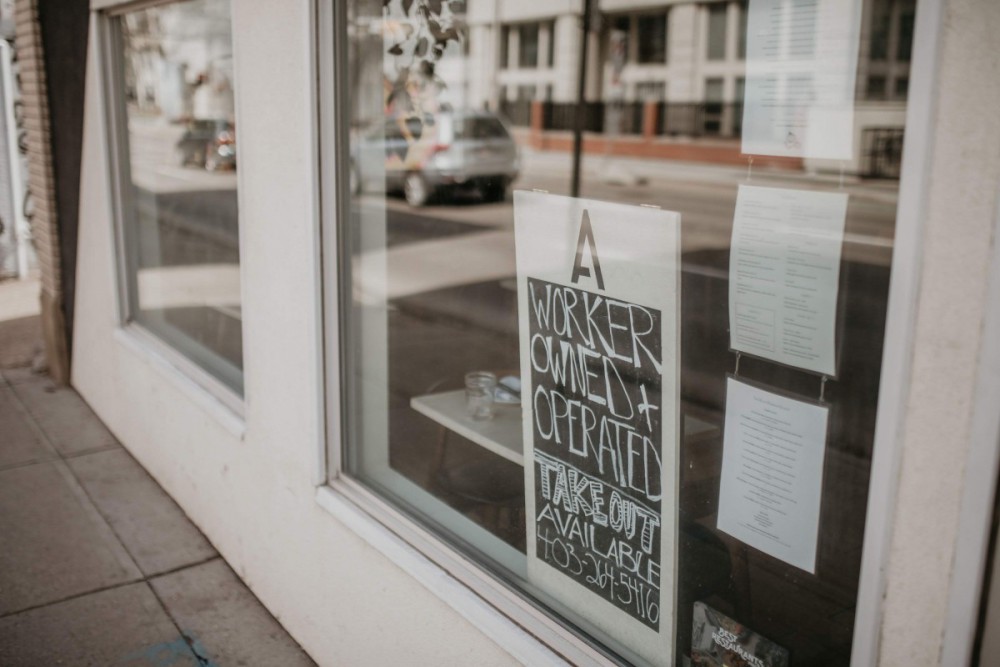
Staying afloat during the pandemic
The Allium had a strong start, but after less than a year in operation, the worker-owners found themselves in an industry devastated by the COVID-19 pandemic.
“COVID hit and we saw everything disappear,” Laura remembers. The restaurant’s doors closed and dine-in tips dried up, leaving the team no choice but to lay off probationary worker-owners. One of the original worker-owners departed because of the stress.
Other restaurants pivoted to take-out, but The Allium eschewed working with delivery companies like DoorDash and SkipTheDishes, which are notorious for ripping off gig workers and restaurants alike. This put them at a disadvantage compared to other restaurants, and they saw their profits plummet.
Rosa Luxemburg describes co-operatives as “small units of socialized production within capitalist exchange.” While Laura and Jared wanted The Allium to resist capitalist structures, they knew that they’d need to meet certain profit margins to keep the business alive.
So, the team got creative. “We did online cooking classes. We did our own deliveries and packaged food items,” Jared recalls. “There were large, corporate restaurants that didn’t survive COVID,” he notes. “It was our creativity that got us through.”
But it wasn’t just the pandemic that stood in their way. “Our landlord was a hedge fund, and they were raising our rent every chance – they wouldn’t delay an increase by even one month,” Jared says. “We had to close our kitchen because of building maintenance and they still wouldn’t discount rent for our losses. ‘Get a lawyer,’ they’d say.”
Even though they had fared relatively well in an industry decimated by the pandemic, keeping up the momentum proved to be a challenge. Laura and Jared had hoped to build a co-op that could last decades, but they were burnt out and needed a change, and newer hires were reluctant to invest in a battered industry. The last year of The Allium’s commercial lease was 2023, and the worker-owners decided to sell.
An imperfect socialist experiment
Upon reflection, Jared and Laura find it ironic that their anti-capitalist restaurant led directly to some conventionally capitalist success out of the gate. “There are strong limitations to worker-owned co-operatives operating in this system,” Jared notes. “We definitely reinforced capitalist structures, often out of necessity.”
In Reform or Revolution, Rosa Luxemburg describes co-operatives as “small units of socialized production within capitalist exchange.” While Laura and Jared wanted The Allium to resist capitalist structures, they knew that many worker co-ops don’t make it past the planning stage, and they’d need to meet certain profit margins to keep the business alive.
“We’re not separate from the systems we live in. In our resistance to these structures it’s often the case that we enact some level of ambiguity, we reproduce some of those same structures – we finance them and reinforce them,” he says, giving the example of burning gasoline to drive to a climate protest. “But that’s okay. How can we participate in life or re-envision the system from outside of it?”
“We have this empty narrative of ‘the harder you work, the more you get.’ But that’s not true. In most capitalist jobs, the harder you work, the more the business owner gets. A profit-sharing co-op fixes that.”
Maya Tait, a probationary worker-owner who joined The Allium team in 2022, credits the restaurant’s many successes to its worker-owner co-op model. “The people working there gave extra effort and took a lot of pride in what they were doing,” she says. Tait describes herself as “environmentally conscious” and says she was drawn to The Allium on account of its vegan menu. When she called and asked to speak to the manager about a position, she was told that there was no manager – further stoking her interest.
“The other servers and I often talked about how great it was compared to other restaurants in the industry,” she shares. “Everyone was actually happy to work there and customers noticed. They’d come in and say what a great atmosphere it was.”
“We didn’t really make any money from The Allium, but we didn’t lose any either,” Laura reflects. Jared chimes in: “We have this empty narrative of ‘the harder you work, the more you get.’ But that’s not true. In most capitalist jobs, the harder you work, the more the business owner gets. A profit-sharing co-op fixes that.”


